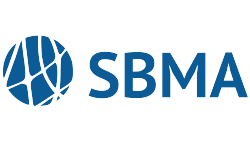The Families First Coronavirus Response Act is an Act of Congress meant to respond to the economic impacts of the ongoing 2019–20 coronavirus pandemic. The act will provide funding for free coronavirus testing, 14-day paid leave for American workers affected by the pandemic and increased funding for food stamps. So, how does the FFCRA affect my employee’s coverage?
As the effects of Coronavirus continue to unfold, we have seen many changes to how companies have to adjust their benefits.
Strategies that employers can utilize to prepare for changes
Employer-provided health coverage
The Families First Coronavirus Response Act ensures that group health plans cover COVID-19 screenings without cost-sharing. The law, however, does not require coverage for treatment without cost-sharing; treatment costs will be based on the terms of the benefits plan.
The IRS states that employees who have coverage with a high-deductible health plan are able to get COVID-19 testing and treatment without additional expenses.
Paid leave and short-term/ long-term disability coverage
Employees with less than 500 employees must provide up to 12 weeks of leave related to child care with the expansion of the Family and Medical Leave Act, and up to 80 hours of emergency paid sick leave to employees who are full-time.
Families first does not address employees who were on disability or leave before the outbreak.
Employer tax credits for paid leave
The FFRCA has provided multiple tax credits to aid employers as they attempt to meet the new requirements. These tax credits are equivalent to 100% of the qualifying leave wages against the employer’s portion of Social Security tax.
Continuing health coverage during furloughs and mandated leaves of absence
During unpaid leaves of absences that are extended, like a temporary layoff of furlough, health benefits are typically halted.
Review your insurance contracts and stop-loss policies to determine how to regard employees who lose eligibility due to an extended leave of absence. Group health brokers can help you navigate extended leave coverage for W-2 employees.
COBRA
Furloughed employees can choose to remain on the group health coverage the employer must collect the amount of the employee’s premium. If an employee is receiving payments from accrued time-off, it is possible to collect premiums from those payments.
Employer inquiries, screenings, and disclosures for infected employees
Asking employees about their health conditions is not a HIPAA violation. Other laws, like the ADA, don’t allow confidential information to be disclosed that concerns employees. If employers screen employees onsite, test results are not associated with a health plan.
Telemedicine programs
The use of virtual medicine gives employees the ability to remain home while being cared for medically, which helps halt the spread of COVID-19.
Employer expenses with a quarantine employee
Some expenses incurred while an employee is quarantined can be considered deductible.
As we continue to navigate through COVID-19 we will likely see more changes to benefits that are being offered to employees. Check back for updates


